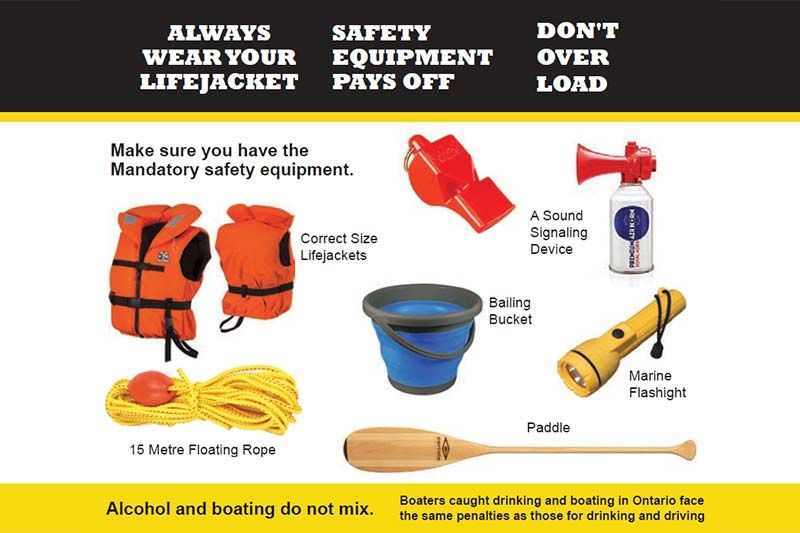Jun 14, 2017
The Ontario Provincial Police (OPP) have already investigated three boating fatalities this spring, with the same contributing factors being reported as in previous years.
Two of the three fatal incidents involved capsized canoes. During the third mishap, the vessel sank. Alcohol/drug consumption was involved in two of the incidents. Only one of the three deceased was wearing a life jacket or personal floatation device (PFD) at the time. One victim was a passenger.
These details are all too common in OPP-investigated boating incidents from year to year.
Last year (2016), 16 vessel operators and seven (7) passengers were killed in 19 boating incidents on OPP-patrolled waterways. Nine (9) of the incidents involved a capsized vessel. Six (6) victims fell overboard. Alcohol consumption was a factor in six (6) occurrences.
Few victims were found to be wearing a life jacket - a statistic that has not changed from year to year. The exception was in 2015 when -- for the first time in more than ten years -- all 18 of the deceased were recovered without life jackets.
Fatal Marine Incidents
Persons Killed
2016 - 23
2015 - 18
Persons Killed - No PFDs
2016 - 19
2015 - 18
Boaters continue to let their guard down in non-motorized vessels, despite the fact that a significant number of fatal incidents occur in canoes and kayaks every year.
In May, the OPP is partnered with the Canadian Safe Boating Council to promote safety on the water.
The OPP is urges boaters to be extra cautious this season in particular, due to high water levels, swift currents and debris creating hazardous boating conditions.
Whether you are a boat operator or a passenger, consider these facts when heading out on the water in any type of water craft:
Of the 250 people who have died in OPP-investigated boating incidents during the past ten years (2007 to present), 209 were recovered without a life jacket or PFD (includes not properly worn).
As a passenger on a boat, you have a right to speak up if the operator is endangering your life in some way. If you know or suspect that the driver is impaired by alcohol or drugs, call 9-1-1. By doing so, you could save lives, including your own.
It can take 30 minutes or more for most adults to become even mildly hypothermic in icy waters. If you find yourself in extremely cold water, do not panic and remember that you have some time to make good decisions.
More Stories
- Latest CUPW Job Action Stops Postal Delivery Of The Frontenac News Forcing Alternate Plans
- Opponents of Barbers Lake Gravel Pit Pack Ag Hall in McDonalds Corners
- Bobsleigh Olympian Jay Dearborn At Mikes Pizza In Sydenham
- The Loins Club Of and O'Lakes Roar
- North Frontenac Back Roads Studio Tour - September 27 and 28
- Sunday Market Vendors Give Back
- George Street Work As Town Hall Renovation Nears Completion
- One Way Street Plan Hits A Dead End - Central Frontenac Council, September 9
- Global Gardening
- No Winner Yet in Catch The Ace But Fundraising Target Met

